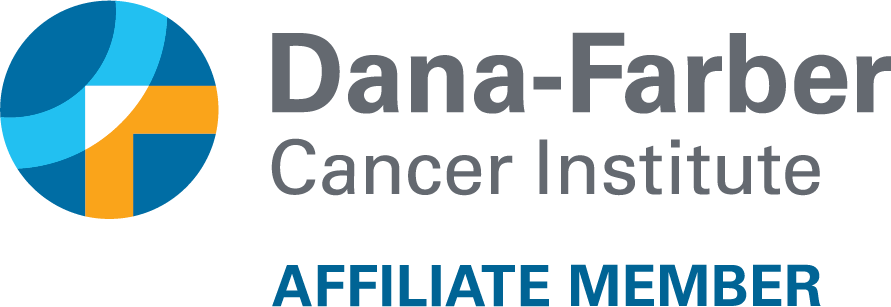Genetic Counseling
Genetic counseling and testing can personalize your healthcare to help lower your risk of cancer.
The role of genetics in cancer is complex, and our understanding of it is advancing quickly. It is important to start by understanding these key points:
- No one inherits cancer, but some people may inherit the increased chance to develop cancer.
- Genes are instructions that help the body function properly. Certain genes called “cancer susceptibility genes” work to keep cancer from developing. Some people have an increased chance of developing cancer, because they have inherited changes (mutations) in these cancer susceptibility genes.
- If someone inherits a mutation in a cancer susceptibility gene, the risk of developing cancer over one’s lifetime is increased, but usually not by 100%.
At NECS, we provide genetic testing across a spectrum of inherited cancer syndromes, including:
- Hereditary breast and ovarian cancer
- Hereditary gastrointestinal cancer (colorectal, stomach, small bowel)
- Lynch syndrome
- Li-Fraumeni syndrome
- Familial pancreatic or prostate cancer
- Hereditary melanoma
Who has cancer?
One in three people will develop cancer at some point in their lifetime, but only 5–10% of cancers are hereditary. Most cancers are “sporadic,” caused by changes in a gene as a result of the environment (e.g., ultraviolet exposure), behavior (diet, tobacco or alcohol exposure), or by chance.
Signs of a hereditary cancer syndrome are:
- Early age of cancer diagnosis (before age 50);
- Multiple family members with the same or related cancers (e.g., breast and ovarian, or colon and uterine);
- Cancer in multiple generations;
- More than one cancer in a single individual; and
- A rare cancer (male breast cancer, adrenocortical carcinoma, sarcoma, hemangioblastoma, and others).
About genetic counseling
Our genetic counselors can help you and your family understand your chance of developing cancer due to a genetic condition known as a hereditary cancer syndrome. If you decide genetic counseling is right for you, a genetic counselor will meet with you to review:

- Personal and family medical histories;
- The genetic basis of cancer;
- The likelihood that the cancer in a family is due to an inherited change (also known as a mutation) in a cancer susceptibility gene;
- The risks for you and family members to develop cancer;
- The chance that genetic testing will be helpful, as well as its risks, limitations, and cost; and
- Personalized cancer screening, risk reduction, and prevention strategies.
Is genetic testing right for me?
Your genetic counselor will talk with you about different issues so you can make an informed decision about genetic testing. Questions to consider:
- If I decide to have testing, what would I do with that information?
- How will the result affect me emotionally?
- How and/or when will I share this information with my family?
Insurance CoverageThe cost of genetic testing has decreased significantly in recent years. Most insurance companies will cover genetic testing when your genetic counselor determines there are specific risk factors in your personal or family history. The genetic counselor will determine that at your visit.
Protection From Genetic DiscriminationThere are laws that forbid health insurance plans and businesses from discriminating based on genetic information. Long-term disability and life insurance, however, may be affected. Your genetic counselor will discuss this with you in more detail, and you can read more about it here.
Preparing for your first visit
Ask relatives for clear information about your family history of cancer, including type(s) of cancer, age(s) when it was found, and treatments received. Pathology and medical records are also helpful. You should be given a family history form to fill out. Or you can download the family history form here. Your initial visit takes about one hour. If you are a new patient to the practice you may meet with a doctor. You may also find it helpful to bring someone with you to your appointment.
Outcomes from the visit
Your genetic counselor may find that your risk of having a genetic susceptibility to cancer is low, and recommend against genetic testing.
If your family history does suggest a hereditary cancer syndrome, we will work together on a genetic testing plan for you and/or other family members.

Genetic Counseling Physicians
Genetic Counseling Team Members
Financial Advocacy

Financial Advocates
If you are experiencing financial distress due to treatment costs or the inability to work, we want you to know that we offer financial advocates who are here to help. Our advocates can assist you in finding resources and support through various third-party organizations, ensuring you have access to the financial assistance you need during this challenging time. Please don’t hesitate to reach out to our team for guidance and support.









